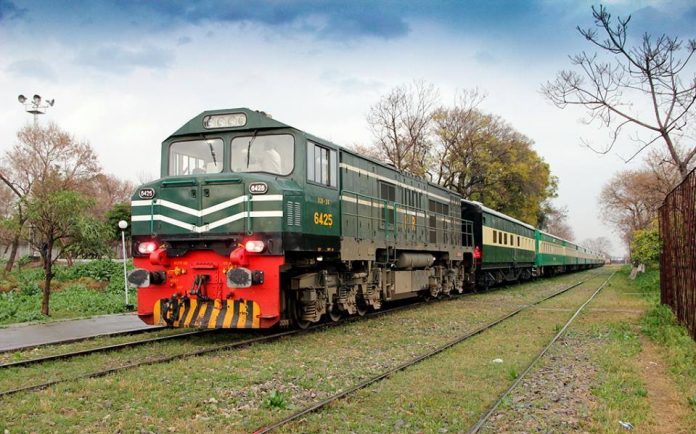
ISLAMABAD: The newly installed government has said it is traversing the possibility of transferring financial risks of a $9 billion railway project under the China-Pakistan Economic Corridor (CPEC) to contractors.
Also, the government has decided to suspend one energy project of 1,300 megawatts capacity, reports Express Tribune.
The Main Line 1 (ML1) project comes under CPEC and will see the expansion, reconstruction of the Karachi-Lahore-Peshawar railway track.
The revision in the methodology of constructing the $9 billion project would need revisions to the framework agreement which Pakistan and China reached in May 2017.
This move has been taken amidst backlash that the previous PML-N government hadn’t fully safeguarded the country’s economic interests when it signed the $46 billion deals under the Belt and Road Initiative (BRI).
Minister for Planning and Development Khusro Bakhtiar said on Thursday that the government was considering the possibility of finishing the $9 billion ML1 project of Pakistan Railways on a build-operate-transfer (BOT) basis.
After the conclusion of the progress review meeting of CPEC, Mr Bakhtiar in a talk with the media said both countries had reached a consensus to establish a new working group for socioeconomic development to solidify cooperation in health, education, agriculture and housing.
The planning minister said a joint study would be carried out to assess the flow of cargo traffic on the CPEC routes since the previous PML-N government spent $6 billion on two road projects without taking projections of the traffic flowing from China into consideration.
He added, “The ML1 project had been conceived to build on the Engineering-Procurement-Construction (EPC) model that shifts the entire financing risks to the federal government.”
In order to avoid risks, the PTI government has started exploring the chances of constructing the project on BOT model.
The ML1 project has been a bone of contention between Pakistan Railways and the Ministry of Finance over the ownership of loan and its servicing.
According to sources in the Planning Ministry, the government would need to carry out a new feasibility study before constructing the ML1 project on BOT basis.
Mr Bakhtiar stated it would be in Pakistan’s interest if the ML1 project was constructed on BOT basis.
Moreover, the planning minister said the previous government didn’t give significance to the ML1 project the way it had given preference to the $2 billion Orange Line project and two road projects worth $6 billion.
He stated the estimated cost of the ML1 project was $9 billion, which had greater economic benefits than the projects mentioned above.
Also, the planning minister shared CPEC would be opened up for investment to third countries and two people have been nominated to promote it.
Mr Bakhtiar said the country required a massive $200 billion for infrastructure development which can only be generated via the assistance of other countries.
He cast aside all the assertions regarding growing indebtedness due to CPEC by stating the share of CPEC loans was only $6 billion or 6.3 percent of the overall debt of $95 billion as of the end of June 2018.
Moreover, the newly installed government has decided to provide protection to all ongoing and planned energy projects under CPEC, aside from the ones that haven’t achieved a financial close and were to be operated on imported fuel, said Mr Bakhtiar.
The projects that have failed to achieve the financial close is the Rahim Yar Khan power project of 1,320MW and the other one is the 300-megawatt Gwadar power plant which is essential for the smooth supply of electricity to the port city.
Mr Bakhtiar said, “Gwadar that has been ignored in the past will be taken forward as a standalone development project to maximize gains from the potential hub of trans-shipment.”






